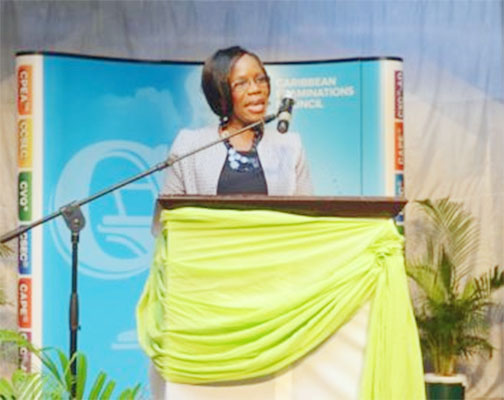The Caribbean Advanced Proficiency Examination (CAPE) has added Green Engineering, one of nine new generation subjects, to its portfolio.
Minister of Education Dr. Rupert Roopnaraine, speaking at the launch of the new subject, at the Theatre Guild Playhouse, Georgetown yesterday said that he welcomes the new subject, GINA reported.
The subject has two units: Introduction to Green Engineering and Application of Green Engineering and Principles.

GINA said that thus far, tourism, financial services, physical education and sport, entrepreneurship, animation and game design, performing arts, and agricultural science have been added.
GINA said that Roopnaraine urged students to “apply the principles of green engineering as a new paradigm that allows for the incorporation of the concept of sustainability and the application of science and design solutions to problems created by conventional engineering.”
Subject Panel Member, Dr Paulette Bynoe said “This will allow students to really exercise their problem solving and critical thinking skills- very important for engineering- so it is not a case where a student will cram and pass the exam,” Bynoe explained.
The syllabus provides for lectures, research, laboratory experiments, debates, use of Information Communication Technology (ICT) and case studies.
Guest speaker, Chief Electrification Officer, Horace Williams, said that the new subject will encourage students to pursue a career in renewable energy. He noted that there is a small group of engineers, technicians and firms operating in the renewable energy sector in Guyana.
“We need more renewable energy professionals to support our drive to adapt renewable energy technologies including wind, biomass, hydropower and in some cases geothermal,” Williams stated.
The ultimate goal, according to Williams, is to minimise people’s activities on the environment, adding that it is necessary to promote green thinking.





